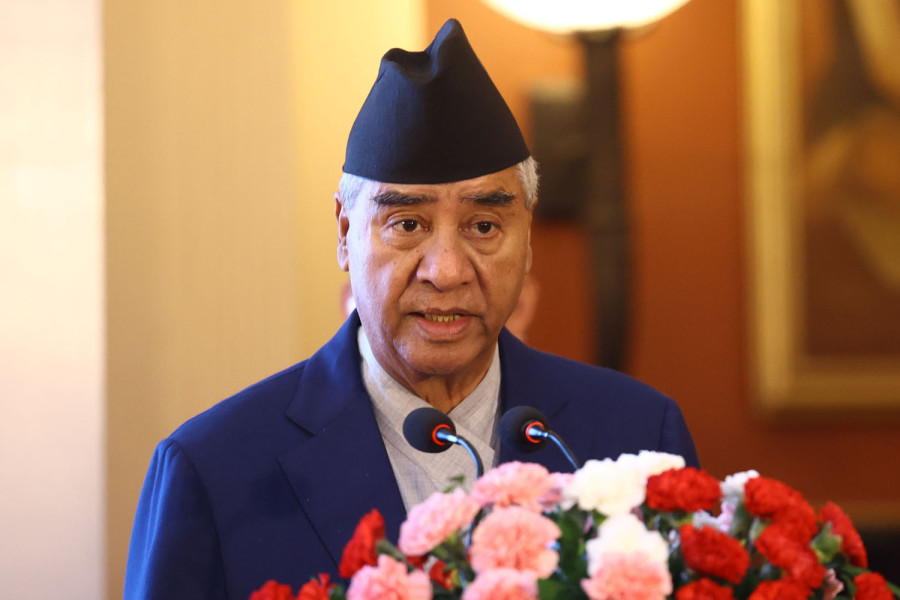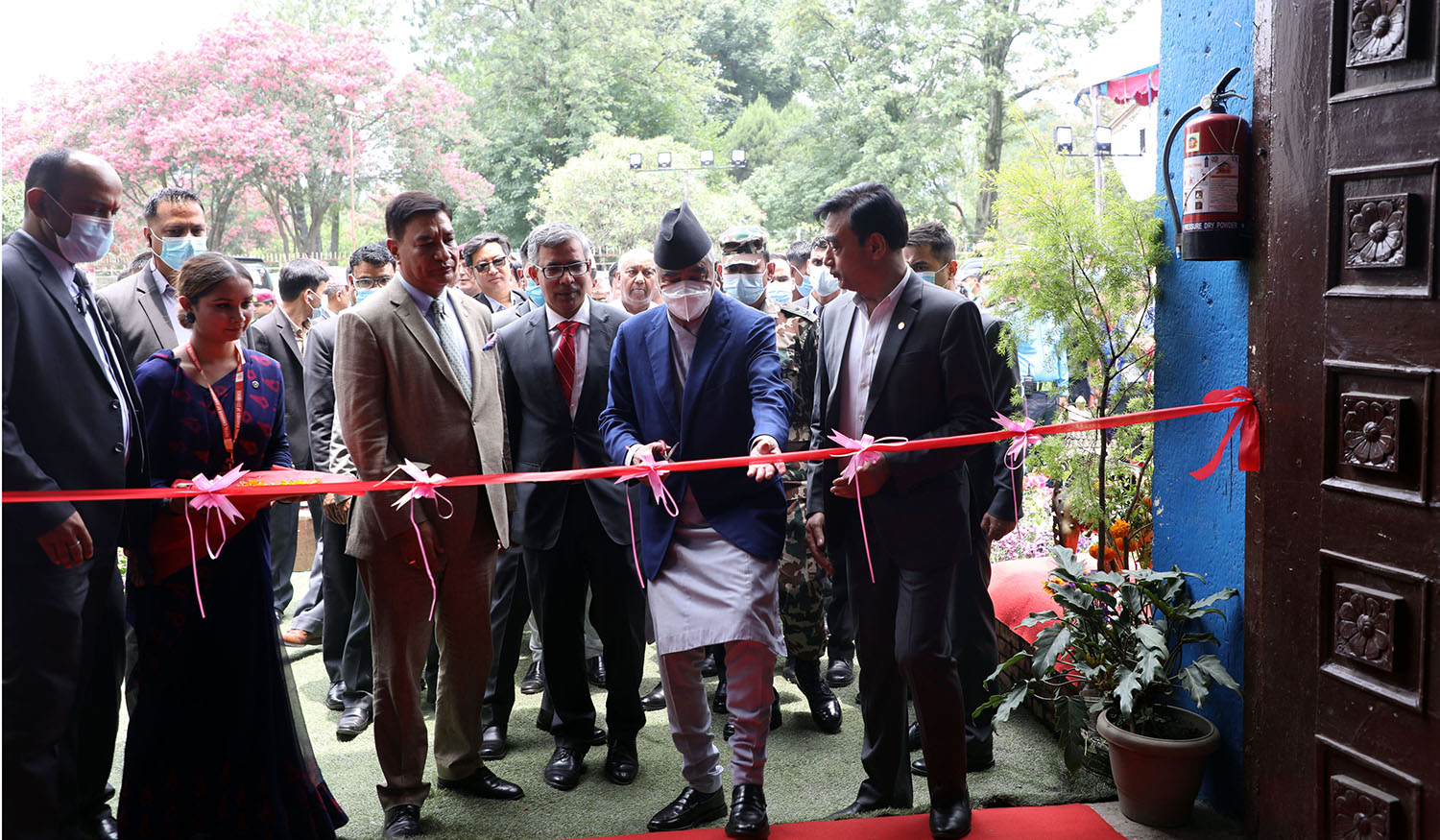National
Deuba avoids House that awaited response on some pressing issues
Amid calls for answers from him on defence budget and SPP, prime minister plays truant.
Binod Ghimire
Thursday’s agenda for the House of Representatives clearly said the prime minister would answer the queries about budgetary allocations related to his ministerial portfolios and agencies under his office. The agenda was finalised on Wednesday itself.
Apart from the budget-related concerns, a group of cross party lawmakers including from the Nepali Congress, has been demanding that Prime Minister Sher Bahadur Deuba inform the House about the government’s position on the United States government’s State Partnership Program. However, Deuba abstained from the parliament meeting where he was supposed to answer lawmakers’ questions related to the Office of the Prime Minister and Council of Ministers, the Ministry of Defence that he currently heads, the National Planning Commission, the President’s Office and the Vice President’s Office.
The lawmakers both from the opposition and the ruling parties repeatedly demanded that the House be informed of the reasons behind his absence. Speaker Agni Sapkota told the lawmakers that other ministers would answer their queries on behalf of the prime minister. “The House has received a letter from the prime minister informing that he will not be available because of his busy schedule,” said Sapkota. Without dwelling much on the issue he allowed Home Minister Bal Krishna Khand to reply to the concerns raised by lawmakers about the Defence Ministry.
Prime Minister Deuba himself has been heading the Defence portfolio since December last year after Minendra Rijal resigned as Defence minister.
Similarly, Minister for Communications and Information Technology Gyanendra Bahadur Karki was assigned to answer the concerns related to the planning commission, and the offices of the president and the vice-president. The lawmakers criticised Deuba’s decision to assign other ministers to answer on his behalf saying it was an attempt to undermine the sovereign Parliament. They also said no other work is more important than answering to lawmakers. “Why isn’t the prime minister present in the House? Is he abroad, or is he unwell?” asked Nepal Majdoor Kisan Party lawmaker Prem Suwal. “The prime minister cannot avoid the queries of lawmakers in Parliament.”
While lawmakers were demanding his presence in Parliament, Deuba was at a function organised by the Non-Resident Nepali Association in the Capital.
Starting Wednesday, lawmakers have been demanding that Deuba give clarifications about the SPP, which has caused controversy both inside and outside the Parliament for the past few days. Nepali Congress General Secretary Gagan Thapa requested Deuba to present himself before the Parliament and clarify the matter. So did Pradeep Gyawali, the CPN-UML deputy general secretary, Majdoor Kisan Party lawmaker Suwal, and Durga Poudel, a lawmaker of the Rastriya Janamorcha, one of the partners in the ruling coalition.
Khand, on behalf of Deuba, said Nepal is neither part of the State Partnership Program and nor intends to join it. “I want to make it clear that Nepal is not involved in the SPP and has no intention to be a part of it,” said Khand. “I would like to express this commitment on behalf of the government.”

Earlier on Wednesday, Minister for Law, Justice and Parliamentary Affairs Govinda Sharma Bandi had claimed that the Nepal government hadn’t received any proposal to sign the SPP between the Nepal Army and the Utah National Guard of the US Army. Answering lawmakers’ concerns in the House of Representatives, he had rubbished the claims that the United States government was pressuring Nepal to sign the deal and said it was just an attempt to defame the government.
Political observers, meanwhile, say there can be nothing more important for a prime minister than answering the House. “Deuba has demonstrated very undemocratic behaviour by skipping the House meeting where he was supposed to answer the concerns of lawmakers,” Khagendra Prasain, who teaches political psychology at the Nepal Open University, told the Post. “His first responsibility is to be accountable to the House, which elected him as prime minister.”
He recalled how the former Prime Minister KP Sharma Oli dissolved Parliament twice to avoid accountability, and said Deuba also appears to be toeing the same path.
“By avoiding lawmakers’ questions, Deuba has undermined the dignity of the House,” said Prasain
Deuba, however, reached Parliament around four hours after the commencement of the meeting but still avoided answering lawmakers’ questions.
Experts on parliamentary affairs say it is not wrong for a prime minister to assign his ministers to answer on his behalf, but there has to be a compelling reason for that.
Skipping parliament to attend the NRNA function was definitely not a wise decision, they say.
“This is an example of the executive’s weakening accountability towards parliamentary democracy,” Som Bahadur Thapa, a former secretary at the Parliament Secretariat, told the Post.
“The prime minister’s behaviour cannot be deemed to be responsible.”
Taranath Ranabhat, a former Speaker, says it is also the responsibility of the Speaker to issue rulings to the government and the prime minister to answer the House. “This is also a weakness on the part of the Speaker,” he told the Post. “How effectively the House functions also depends on how proactive is the Speaker.”




 8.22°C Kathmandu
8.22°C Kathmandu














